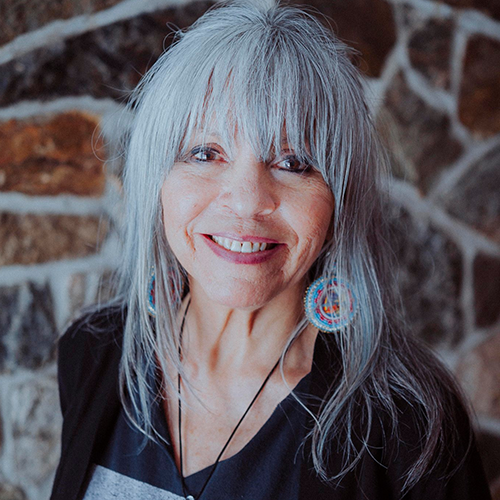Open to: All are welcome! You must have a BCIA or a Guest account to register. Only one participant per registration is permitted.
Dawn Morrison’s two-part series on the Introduction to the Indigenous Food Sovereignty Toolkit builds on previous BCIA hosted workshops with Janis Brooks of Salishan Solutions and insights from Jacob Beaton and Tea Creek’s Indigenous-led food sovereignty work. Indigenous communities have faced significant loss of access to traditional foods and lands in the forests, fields and waterways. Indigenous food sovereignty offers a transformative framework for truth and reconciliation, and reconceptualizing healthy, regenerative, and equitable food systems.
During these sessions, participants will explore the From the Ground Up Toolkit as a framework connecting Indigenous food systems to Agrologists’ areas of practice, from land and resource management, environmental restoration, and community engagement. Dawn will discuss ideas that encourage participants to move beyond awareness toward deeper meaning and understanding of how Indigenous food sovereignty paradigms, principles, and practices can be applied to the scientific and applied principles that guide professional agrology. Participants will reflect on how Indigenous-led food systems strengthen community, culture, and healthy and interdependent social and ecological systems.
Over these sessions, you’ll explore how to access and respectfully engage with the Toolkit, reflect on cultural safety and positionality, and prepare for a deeper immersion in Bundles 1- 4 in 2026. This event offers a meaningful step toward aligning agrology practice with reconciliation, relationship-building, and sustainable land-based approaches.
Each session is $30, or grab both for $50, saving you $10, which you could potentially invest in something delicious to snack on during the sessions. Maybe a box of doughnuts… or one really fancy doughnut🍩. (BCIA does not offer financial or dietary advice. This is merely a serving suggestion. For investment or nutritional guidance, please consult your financial advisor or nutritionist.)
Session 1: Orientation & Learning Objectives (Dec 9)
This session will serve as an intake and orientation session for participants interested in a full immersion experience in the From the Ground Up Toolkit.
Getting to know each other - Discussing positionality - Why social power, privilege, motives matter?
- Outline the 4 key principles of Indigenous food sovereignty, and interventions and strategies to apply them.
- Identify ways that your work is entangled with Indigenous food sovereignty.
- Review of the intake questionnaire/registration process for Full Toolkit Immersion in 2026.
Session 2: Relationship Building & Cultural Safety Assessment (Dec 10) - Register separately HERE
The following session will focus on relationship building, cultural safety, and positionality, including:
- Understanding how to access and respectfully use the Toolkit
- Guided discussion on participants’ positionality and their work’s relationship to Indigenous food sovereignty
- Completion of an intake questionnaire to support future learning
About the Toolkit
From the Ground Up: Toolkit for Indigenous Food Sovereignty Planning was developed by the Working Group on Indigenous Food Sovereignty. It is a synthesis of the key insights, analysis and learnings gathered within the Indigenous Food Systems Network since 2006, and consists of primers, activities, methods/methodologies to guide individuals and organizations who are seeking to meaningfully engage and support Indigenous Peoples in creating the key conditions necessary to achieve Indigenous food sovereignty in policy, planning and governance.
Each of the four bundles (modules) emphasize the interconnectedness of Indigenous food, land, culture, health, socio-economic, and policy, and is rooted in the four pillars of food justice (knowledge, culture, economic and political power).
The Toolkit provides terminology, tools, methods of facilitation, and transformative methodology to guide the creation of ethical spaces of engagement in essential aspects of protecting, conserving and regenerating Indigenous Peoples' food systems.
Download the Brochure HERE
Why Indigenous food sovereignty matters:
Indigenous Peoples are the oldest living memory of what it means to live in the right relationship to the land, water, people, plants and animals that provide us with our food. The settler colonial narrative of agriculture has erased and displaced Indigenous Peoples from the subsistence cultures and economies of hunting, fishing, farming and gathering foods in the forests, fields and waterways. Agro-ecology acknowledges the interdependence between agriculture and the neighbouring Indigenous ecosystems. Indigenous food sovereignty provides a framework for conceptualizing and implementing new accountability frameworks for restoring health, social and environmental justice, and social and economic wellbeing while uniting all who care about equitable food systems and foodland conservation.
As the late Secwepemc Elder Jones Ignace reminds us, - “Food will be what brings the people together.”
Presenter

Dawn Morrison, of Secwépemc ancestry, is the Founder and Curator of the Working Group on Indigenous Food Sovereignty. For over 16 years, she has been a leading voice in advancing Indigenous food sovereignty through her work in horticulture, ethnobotany, adult education, and land-based healing. Internationally recognized as a published author and advocate, Dawn’s work bridges Indigenous knowledge with social justice, climate action, and regenerative food systems. Her initiatives, including the Wild Salmon Caravan, Indigenous Food and Freedom School, and Dismantling Structural Racism in the Food System, reflect her lifelong commitment to decolonizing food systems and fostering cross-cultural understanding.
Additional Information
Further details on how to access the Toolkit and related resources will be provided after registration.
For more about the Indigenous Food Systems Network, visit: Indigenous Food Systems Network
If you register for both sessions (each session is a separate registration), please use the discount code "DOUGHNUT".
To register for this event, please login or create an account.
